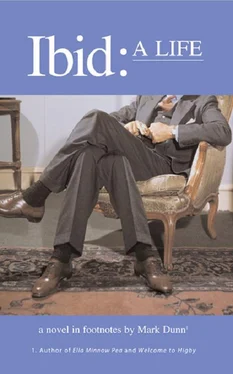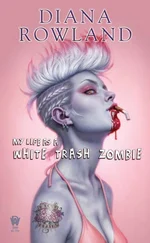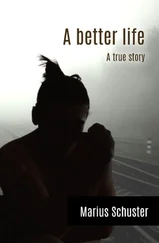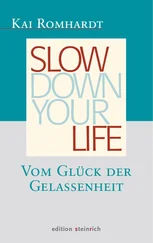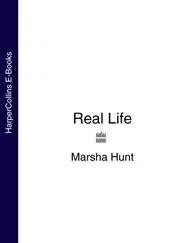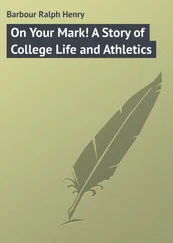8. “I liked Haverty’s laugh. I wanted to emulate it.”Jonathan described it this way: “Homph, homph, heh, hickle, heh, homph.” Jonathan’s Diary, JBP, 1 March 1930.
9. “In the sum of it, a most delightful evening with the three-legged man.”Evelyn Waugh did, apparently, enjoy his late-night encounter with Jonathan at the Kensington Pub, taking the opportunity to unbosom himself of a number of deep-seated regrets and concerns. The satirical British novelist confessed profound disappointment over being forced by his publisher to excise most of the homosexual, pedophiliac, and incestuous references from his Decline and Fall , adding, as he became bolder in his admissions to Jonathan, that an earlier draft of the manuscript containing, as well, a scatologically-defiled tea party and an orgy involving several English schoolboys and two crippled milch cows, could have made for a much more controversial book. It was all, according to Waugh, simply a matter of “mores and taste. You see, I prefer a few more seasonings in my literary spice rack.” That evening Evelyn also expressed regret over having the same first name as his wife. It made for a number of confusing marital moments, especially on those occasions during which self-critical monologues were overheard and misunderstood by wife Evelyn, to the cruel delight of the hired help. Private notes, Waugh Papers, Cramlington University. U.K.
10. It was during his visit to England that Jonathan met Clara Gleason.Jonathan Blashette to Addicus Blashette, 15 March1930, JBP.
11. “I didn’t care for her at first, but she does have a way of growing on you.”Ibid., 19 March1930, JBP.
12. The old die young.Clara’s contempt for anyone over the age of fifty is best summed up in the poem which follows. Published by The Young Set , organ of the British Society for the Abolition of the Aged, “Buckie Biddle” caused an outcry at the time. Clara was sent hate mail from angry seniors throughout the world (including Jonathan’s father Addicus, who, exercising his new Yiddish vocabulary, pronounced it meshuga ) and from every demographic subset, including a centenarian who mailed her his befouled bed sheets and called her a “snot-nosed ninny.” Harsh British reaction in particular was one of the reasons Clara ended her lengthy literary sojourn in England and returned to the States with Jonathan.
Buckie Biddle
Buckie Biddle made a piddle
In her panties,
In the middle.
Down her leg, dribble dribble
While down her chin wind streams of spittle—
Droolly mewlly little
Dots and spots of spinky spittle.
Spitty splat and splatter spit,
Plinking pink and wrinkly tit—
Down bony chin, jutting brittle
To droopy tit, a splishy puddle.
Buckie blinks and squints and prattle
Blurts and spurts, a mumbly muddle.
Murmur Murmur reminisce.
Buckie’s brain:
Addled mess.
Buckie’s life near to end—
Broken life, no hope of mend.
So fluids flow,
Recede and dry.
Then desiccated Buckie die.
13. “I love her because she’s dangerous.”Jonathan’s Diary, 18 March1930, JBP. The effusive entry continues:
“I love her because she grabs life by the horns, by the short hairs, by the ear lobes and doesn’t let go. She hangs on to life, wrestling with it, thrashing it about, flinging it from side to side like a terrier with a death-destined woodrat. She takes life in her hands as if it were some great sopping sponge from which she must wring out every last drop. She holds it over her beautiful upturned head and she squeezes the salty liquid from its pores and it spills into her open, thirsty mouth and she drinks of it in great happy gulps as it rivulets down her sweet, softly curved chin, from her gaping, grinning, giggling mouth. And I want to take her in my arms and celebrate her celebration of that celebratory instinct within us all. I want to lay tongue-active kisses on her winks, on her saucy secretive smirks, on her sloppy, full-barreled assaults on a world gone stale, gone dry on the vine, a world gone greedmad or complacent or afraid without cause. She stands back and whoopbelts: ’Why this? Why not? Why worry? What, me worry? Where is my life? Here it is! Splayed before you to be wholly engaged. To be put into gear. I will address the starter and watch it go. And I will adjust the setting to ‘high’ and I will fly!’ My Clara — climber of mountains and spinner of dreams, untempered, uncorralled, undeterred. My glorious free spirit. My ClaraDelicious.
I love her for all these things. I love her too, perhaps most of all, for waking me to my own potential”
14. “Doctor Bloor, Clara will show me how to bring purpose to my own life.”Jonathan Blashette to Andrew Bloor, 21 March1930, AnB.
15. “For heaven’s sake, Jonathan, don’t let her go to Boston.”Andrew Bloor to Jonathan Blashette, 4 April1930, JBP.
16. Clara came with baggage.In addition to her son Hunter and her niece Margreta whom she was raising following a burro collision in the Grand Canyon that permanently juggled the brains of her sister Ida, Clara brought with her four dogs, two cats, Clara’s Aunt Love, Clara’s Aunt Love’s iron lung, Clara’s Aunt Love’s nurse Miss Puntz, Nurse Puntz’s extensive collection of japonaiserie, a sheep named Orville (for the wool), a goat named Snickersnee (for the cheese), and the famed engineer and bridge designer Bascom Caruthers. Merry Mintz Figel. Research notes from unproduced stage production Clara! The Musical , c. 1965.
17. One of Bascom’s ears had been badly disfigured in a botched candling episode.Ibid.
18. Among the other habitués of Clara’s literary “salon” were Dorothy Musgrove and Carter Wendt.Carter was perhaps genetically predisposed to poetry and light prose as the grand-nephew of poet Damon Wendt who, befriended by Walt Whitman at a Camden dry goods store as the two men found themselves laying claim to the same flannel work shirt, was inspired to write in the style and spirit of the hoary celebrant of the common man. (With all correspondence between the two having been burned by Damon’s sister and Carter’s great aunt Edith Puggs, upon Damon’s death and her discovery that he had deliberately called her in order of frequency, “Pigg,” “Porker,” “Priggy Pig” and “Ham Hips”), we are left with only Damon’s clearly derivative poems as evidence that Carter’s great uncle not only shared Whitman’s “invert” nature, but sought to incorporate the predilection into his poetry in an even more overt manner than did his friend and fellow flannel-wearer. An example is the following, from his self-published collection, Blades with Stalks.
Paean to the Packing House
O men of meat!
With rippled sinew, with muscles spread thick and bared,
To push, to pull, to swell, sweat-moistened, to haul and heave and thrust — hips forward hips back, a rush of man-work,
This place of heft and husky, hirsute manhood.
This abattoir of dust and dank and blood.
Blood of beast, sweat of man.
O pageant of manhood!
I gaze upon the scene and within me a beast awakes, stretches, yawns, fisting his eyes and viewing carnage civilized by the muscular men of meat.
Hear the throaty cries of the barrelmen of beef and brawn who carry the weight of commerce upon their massive, undulating shoulders.
Throats that hunger for the taste of meat cut, meat uncut.
I sing my joy of the packing house.
Читать дальше
